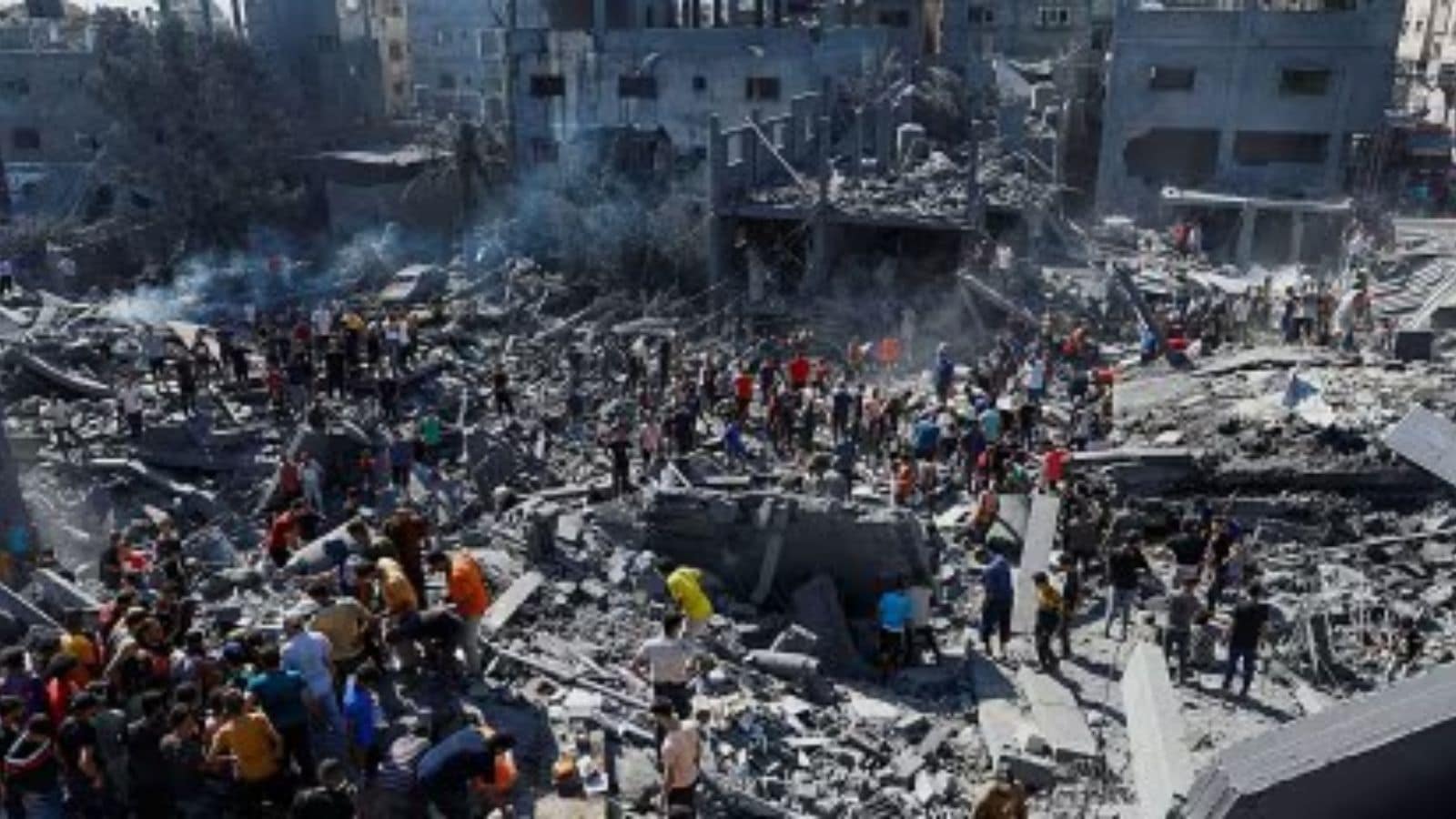 |
|
The ongoing conflict between Israel and Hamas has witnessed a significant development with the Israeli security cabinet approving a ceasefire agreement. This decision marks a potential turning point in the fifteen-month-long conflict, offering a glimmer of hope for a much-needed respite. The agreement hinges on a crucial element: the exchange of hostages currently held by Hamas for Palestinian prisoners incarcerated in Israeli jails. This intricate exchange represents a complex negotiation process, requiring meticulous planning and delicate diplomacy to ensure its successful execution. The approval of the ceasefire by the security cabinet is a significant step, but it is not the final hurdle. The agreement must still be ratified by the full cabinet, a step expected later on Friday. The success of this final approval is not guaranteed and remains a critical juncture in the process. The weight of expectation rests heavily on this decision, determining whether a fragile peace will prevail or the conflict will continue its devastating trajectory.
The proposed six-week ceasefire is an initial period designed to provide a window of opportunity for further negotiations and the implementation of the prisoner exchange. This timeframe, however, is not without its inherent risks and challenges. Maintaining the truce for even this short duration will require continuous vigilance and commitment from all parties involved. Breaches of the ceasefire, even minor incidents, could easily escalate tensions, potentially jeopardizing the entire agreement. The fragile nature of this six-week truce underscores the deep-seated mistrust and animosity between the two sides, highlighting the need for robust mechanisms to monitor compliance and address any violations effectively. International observers and mediators will likely play a critical role in this process, ensuring transparency and accountability.
The humanitarian situation in Gaza remains dire, with significant damage to infrastructure and a massive displacement of civilians. The ceasefire offers a critical opportunity to address these pressing humanitarian needs. The provision of essential supplies, including food, water, medical care, and shelter, is paramount. Rebuilding damaged infrastructure and restoring essential services are critical steps towards recovery and reconciliation. International aid organizations and humanitarian agencies will play a crucial role in coordinating and delivering aid effectively to the affected population. The success of the ceasefire will not only be measured by its duration but also by its ability to alleviate the suffering of those most impacted by the conflict. The long-term implications of the ceasefire extend beyond the immediate humanitarian needs; they also include addressing the underlying political issues that fueled the conflict in the first place. The terms of the prisoner exchange will be central to the lasting peace. Failure to address the root causes of the conflict would increase the risk of further escalations in the future.
Beyond the immediate ramifications, the success of this ceasefire will profoundly impact regional stability and international relations. The conflict has drawn significant international attention and sparked debates on various global issues, from human rights to the role of international intervention. The outcome of the ceasefire negotiations will be carefully watched by global powers and international organizations, influencing their future policies and diplomatic efforts in the region. The agreement's success or failure will serve as a crucial precedent for future conflict resolution efforts, influencing diplomatic approaches and strategies in similar situations across the globe. A successful and lasting ceasefire could pave the way for broader regional peace initiatives, fostering dialogue and cooperation between conflicting parties. Conversely, failure could lead to renewed conflict and further instability in the region, with far-reaching geopolitical repercussions.
The path ahead remains fraught with challenges. The complexity of the hostage exchange, the need for sustained commitment from all parties, and the urgent humanitarian requirements create a formidable task. The success of this ceasefire ultimately depends on the willingness of all parties involved to engage in good faith, prioritize peace over violence, and address the underlying issues that have fueled this protracted conflict. Only through a concerted and sustained effort can this delicate agreement translate into a lasting peace that ensures a better future for the people of Gaza and Israel.
Source: Israel security cabinet approves Gaza ceasefire agreement
